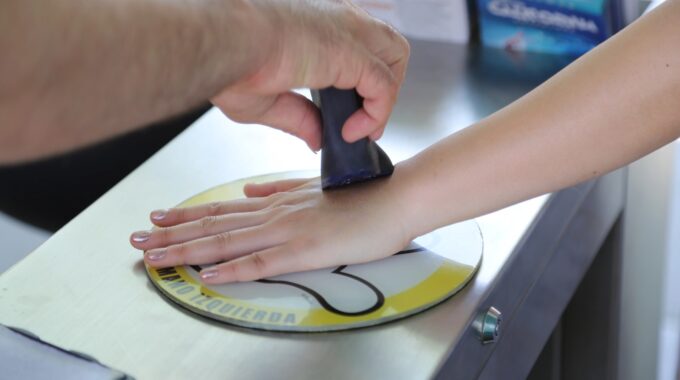Adapted from the writings of Dayan Yitzhak Grossman April 18, 2024 AP News reports: A…

Q&A from the Bais HaVaad Halacha Hotline
Skin Color
November 16, 2023
Q Must I avoid having my hand stamped when visiting a tourist attraction?

A The Torah (Vayikra 19:28) forbids inscribing in one’s skin a ksovess ka’aka (tattoo), whether he does it to himself or allows someone else, even a non-Jew, to do it to him (Shach Y.D. 180:4). There is no Torah prohibition against merely writing on the skin—even using permanent ink—if it does not involve depositing pigment inside the skin (Rambam Hil. Avodah Zarah 12:11).
Some Acharonim maintain that writing on the skin’s surface was prohibited by Chazal as a safeguard against tattooing. The Minchas Chinuch (253:1), siding with this view, clarifies that the prohibition only applies to permanent ink. But the Sheivet Halevi (3:111) says there is no issur whatsoever against writing on the skin without the ink penetrating it.
According to some poskim, the Torah prohibition only applies to the writing of letters (as implied by the word ksovess), not images or designs (Me’il Tzedakah 31, cited by Pis’chei Teshuvah Y.D. 180). But inscriptions other than letters are forbidden mideRabanan. Others say that ksovess includes any image of significance (Ra’avad on Sifra, Kedoshim 3:6). A third view holds that any mark, even without meaning, is subject to the issur de’Oreisa (see R’ Chaim Kanievsky’s Pas’shegen Haksav, synopsis 9). Thus there is no reason to avoid having your hand stamped, because the ink is not permanent. Even if permanent ink were to be used, it may be permitted based on the above if only an image is stamped and not letters.
R’ Yitzchak Zilberstein (Chashukei Chemed, Makos 21a) was asked about tattooing soldiers’ blood type on their teeth in case of the need for a transfusion. He quotes from R’ Chaim Kanievsky (ibid. perek 5) that the de’Oreisa prohibition doesn’t apply to teeth, only skin, and there is possibly no Rabbinic prohibition either.





